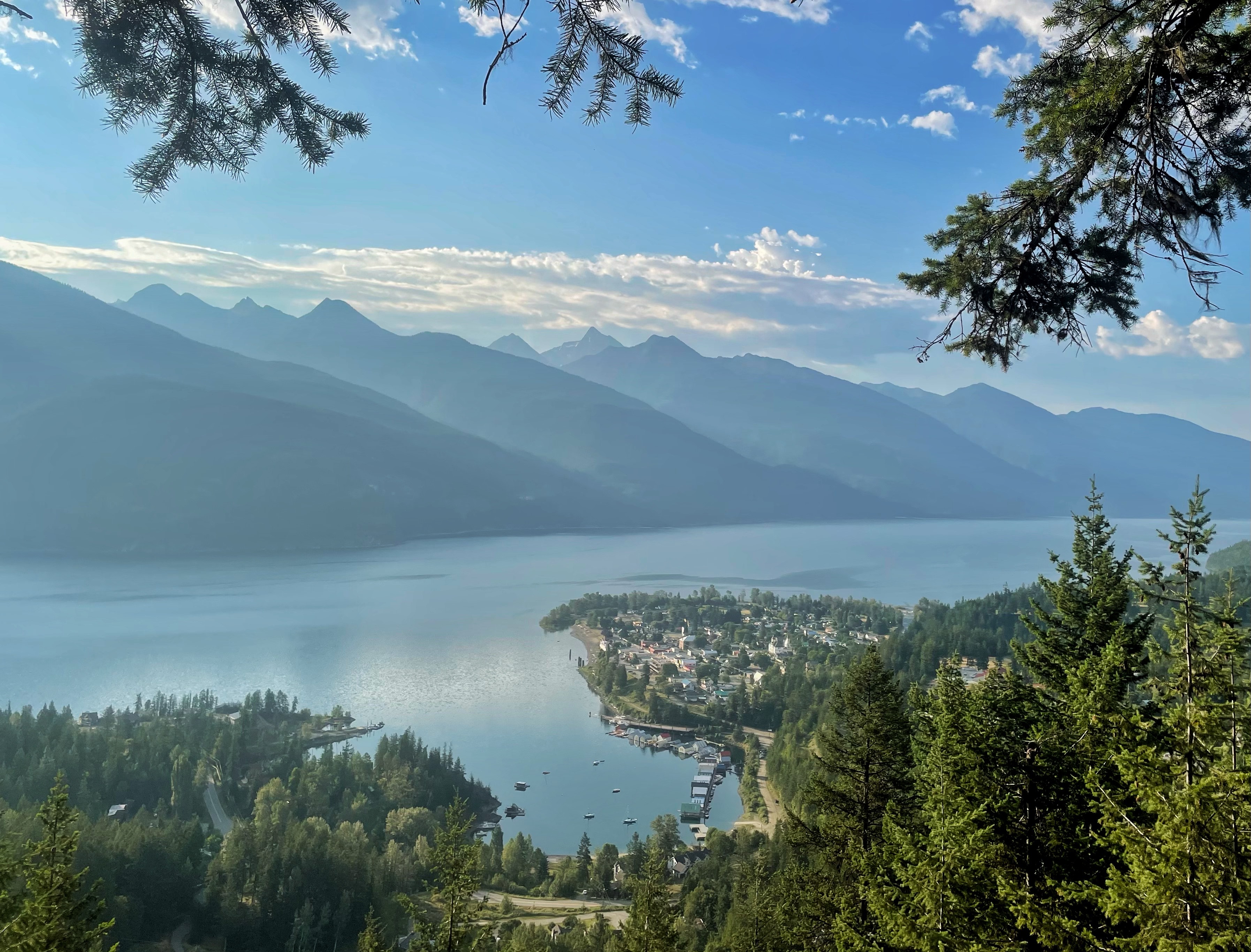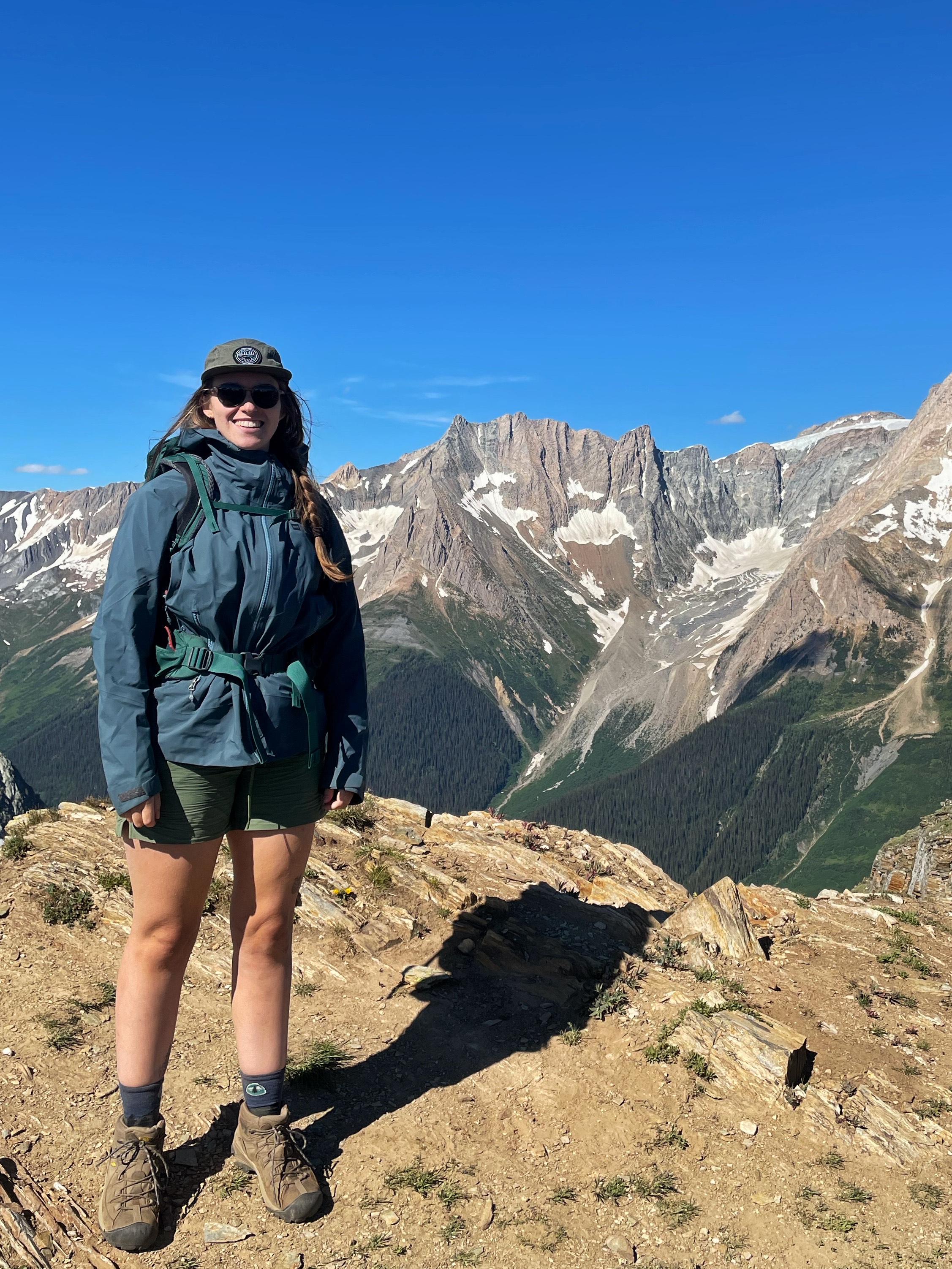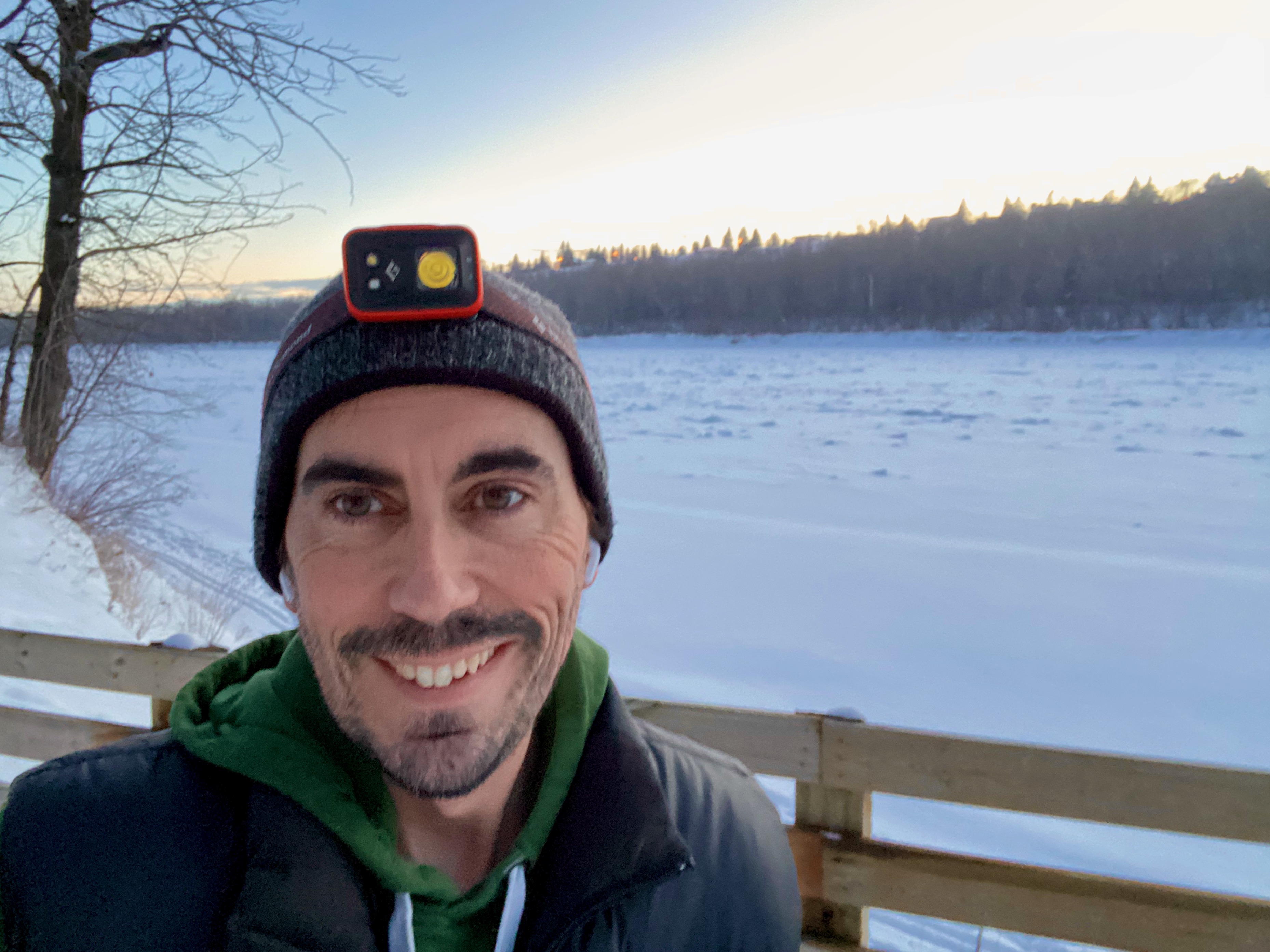Grad student’s research tackles rising housing prices in rural hometown
The housing market in Erika Cizek’s hometown of Kaslo, B.C. has become hostile for people who have spent their lives in the community.
In 2016, the average home in the 1,000-person village was valued at $266,568. By 2021, average home values jumped to $414,000.
Cizek has seen area businesses reduce their operating hours because staff were priced out of the housing market. She knows renters who were forced from their homes and into tents to make way for Airbnbs.
“I think it’s especially hard for people who grew up in the community to come back and be able to start their lives there,” said Cizek, a master’s student studying human geography in the Department of Earth and Atmospheric Sciences. “If they’re not willing to do whatever it takes to stay, then they have to leave.”

Kaslo, B.C. Photo by Erika Cizek.
These tensions prompted Cizek’s master’s research project, a case study that explores the forces behind soaring housing costs in Kaslo and the City of Nelson, a roughly 11,000-person community 70 km southwest of Kaslo.
Cizek is particularly interested in the impacts of short-term rentals such as Airbnb, policies to limit housing prices and efforts to provide “community housing,” an umbrella term that refers to any kind of social or affordable housing.
Over the summer she interviewed local elected officials, planners, community housing organizations, realtors and advocates for tenants' rights to understand the scale of the problem.
“Based on these interviews, lack of housing supply seems to be the biggest issue. People want to live the Kootenay lifestyle, and communities are really struggling to accommodate everyone,” Cizek said.

Insurmountable housing prices in major Canadian cities such as Vancouver and Toronto have caused an exodus of people looking to purchase homes in more affordable locations, according to Cizek. This creates new demand for housing in rural areas.
At the same time, communities such as Kaslo and Nelson, whose economies were once based around resource extraction, have pivoted to tourism, creating a market for vacation rentals and second homes that sit empty for much of the year.
“It raises questions about what sustainable tourism looks like—and if it’s even possible,” said Damian Collins, a professor and human geographer in the Department of Earth and Atmospheric Sciences and Cizek’s research supervisor.

As sightseers, outdoors enthusiasts and second-home owners flock to these communities, the local workforce, which is increasingly operating in tourist or tourist-adjacent industries, must compete with visitors for the limited housing supply. But jobs in tourism don’t pay enough to cover housing costs, and they replace more lucrative work in other industries, according to Collins.
“You can end up with both social and economic imbalance, where you lack the workforce to support the tourism industry,” Collins said.
Kaslo and Nelson receiving “a trickle” of funding for community housing
An influx of new housing may slow escalating prices, but smaller communities must overcome many hurdles before they can break ground.
“One of the key complaints that I’ve heard is that municipal governments, especially of Kaslo's size, do not have the capacity to do much more than keep existing infrastructure intact,” Cizek said. “They’re reliant on community housing organizations to step in and try and contend with the housing issue.”
Finding money for community housing involves navigating the proposal writing process and applying to provincial and federal governments for grants. Nelson has established community housing and community support services with employees who can handle this work, but Kaslo relies on a group of volunteers, most of whom don’t have experience writing grant applications.
And even if they’ve crafted an ideal proposal, smaller communities may be less likely to receive money for housing than larger cities, Cizek said.
“Another thing I’ve heard in my interviews is that, especially with provincial-scale initiatives, funding bodies are looking to have the most impact for their investment,” Cizek said. “Impact is often recorded in number of units. Putting 100 units in Kaslo probably wouldn’t be feasible given the size of the community, whereas putting 100 units in Vancouver would have a much bigger impact.
“Somebody said in their interview that ‘the tap is on for Vancouver, and even Kelowna and Kamloops, but once it reaches places like Nelson and Kaslo, it’s a trickle.’”
“It can happen anywhere.”
The researchers believe that the problems facing Kaslo and Nelson have the potential to happen in any rural Canadian municipality that is rich with amenities.
“We have good evidence of that from Atlantic Canada,” Collins said. “It started during the pandemic, when people were looking to move outside of big cities and experience the coastal amenities of Atlantic Canada. Housing was initially affordable, but very quickly home ownership and rental prices escalated. It can happen anywhere—including places that were initially considered pretty unlikely.”
Research on the housing crisis in Canada’s rural communities is sparse, possibly because 83 per cent of Canadians live in cities, which are also home to most universities and media outlets, Collins said. Cizek hopes that, once it’s completed, her master’s thesis can contribute to filling this gap.
"I’m also hoping this work can be of use to my community,” she said. “Small communities are easily overshadowed by the happenings of major cities, leaving them to fend for themselves. I hope the research will contribute to growing calls to draw attention to smaller communities like Kaslo and Nelson, which are in dire need of help.”
Damian Collins is an affiliate of the Sustainability Council. Learn more about the benefits of joining our Affiliate Network.


